
EDITORIAL ADVISORY BOARD
ARO Journal is supported by an Editorial Advisory Board (EAB), a group of esteemed experts in various fields of Science, Engineering, and Technology. The primary goal of the EAB is to enhance the quality, reputation, and impact of the journal by providing strategic guidance and support to the editorial team.
Key Duties and Tasks
1. Strategic Guidance
- Defining Scope and Focus: The EAB helps in defining the journal’s scope and focus, ensuring it remains relevant and impactful within its academic fields.
- Target Audience and Readership: Identifying the target audience and readership to tailor content that meets the needs and interests of our readers.
- Long-Term Goals and Strategies: Developing long-term goals and strategic plans to guide the journal’s growth and evolution.
2. Content Evaluation
- Quality and Relevance: Assessing the quality and relevance of submitted manuscripts to ensure they meet the journal’s standards.
- Reviewer Recommendations: Recommending suitable reviewers for manuscript evaluation to ensure a rigorous peer review process.
- Feedback on Published Content: Providing constructive feedback on the overall quality of the journal’s published content to maintain high standards.
3. Trend Identification
- Emerging Trends and Research Areas: Identifying emerging trends and new research areas within the field to keep the journal at the forefront of scientific advancements.
- Special Issues and Thematic Collections: Suggesting topics for special issues or thematic collections to highlight cutting-edge research and foster interdisciplinary collaborations.
4. Journal Enhancement
- Visibility and Impact Factor: Working to increase the journal’s visibility and impact factor by promoting it within the academic community and beyond.
- High-Quality Submissions: Attracting high-quality submissions from leading researchers and practitioners in relevant fields.
- Academic Community Relationships: Building and nurturing relationships with the academic community to strengthen the journal’s reputation and influence.
5. Ethical Standards
- Publication Ethics and Integrity: Ensuring strict adherence to publication ethics and maintaining the integrity of the research process.
- Transparency and Accountability: Promoting transparency and accountability in all aspects of the publication process.
6. Review Process
- Expert Opinions: Assisting in the peer review process by providing expert opinions and insights on submitted manuscripts.
- Dispute Resolution: Helping to resolve disputes or controversies related to manuscripts, ensuring a fair and unbiased review process.
The dedication and expertise of our Editorial Advisory Board members are instrumental to ARO Journal's success. Their invaluable contributions enable us to publish high-quality research that advances knowledge and positively impacts the scientific community.
Editorial Advisory Board Members:
1. Dr. Halgurd S. Maghdid | Iraq
2. Dr. Farid Zubir | Malaysia
3. Dr. Abdulbasit Kamil Faeq AL-Talabani | Iraq
4. Prof. Hamed Muhammed Jassim | Iraq
5. Dr. Saeed Roshani | Iran
6. Dr. Ikbal Muhammed Gharib | Iraq
7. Dr. Leila Nouri | Vietnam
8. Prof. Saddon Taha Ahmad | Iraq
9. Dr. Layth Imad Abd Ali Daabel | Iraq
10. Prof. Basim Mohammed Fadhil | Iraq
11. Dr. Ali Al-Wakeel | Iraq
Halgurd S. Maghdid

⮹ e-mail: halgurd.maghdid@koyauniversity.org
Farid Zubir

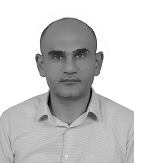
⮹ e-mail: abdulbasit.faeq@koyauniversity.org
Hamed Muhammed Jassim
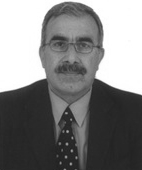
⮹ e-mail: hamed.jassim@tiu.edu.iq

⮹ e-mail: s_roshani@iau.ir
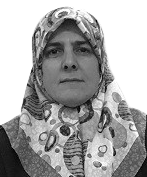
⮹ e-mail: ikbal.tahir@koyauniversity.org
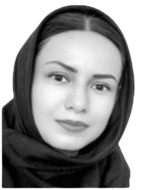
⮹ e-mail: leilanouri@duytan.edu.vn
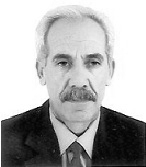
⮹ e-mail: saddon.taha@koyauniversity.org
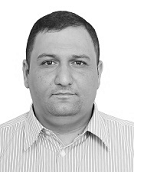
⮹ e-mail: layth.imad@koyauniversity.org
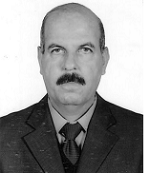
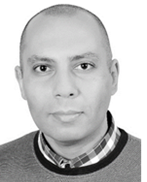
Ali has been with the Faculty of Engineering, Koya University as a Part-Time staff member (2008) and a Full-Time academic staff (2009). He has also been linked with Cardiff School of Engineering as a Remote Researcher following his graduation until 2022.
Ali is a recognised and well-known reviewer of prestigious journals including Elsevier’s Applied Energy (IF = 10.1) and Elsevier’s International Journal of Electrical Power & Energy Systems (IF = 5.0). He was the winner of the Best Reviewer Award of Applied Energy journal in 2016 and 2018.
Ali has also been a member of the International Advisory Committee of IEEE’s PowerTech Conferences (Madrid, 2021 and Belgrade, 2023). Ali is a registered member of IEEE and the IET.
Ali’s research interests include smart meters, state estimation, multi-vector energy networks, modelling and control of electric vehicles and their energy management systems, and building information and energy management systems (BIMS and BEMS). [GSP], [ORCID], [TAP]
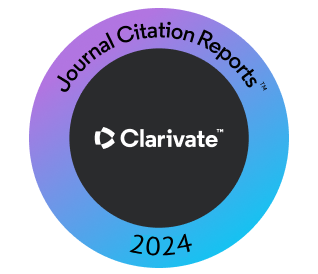








 ARO Journal is a scientific, peer-reviewed, periodical, and diamond OAJ that has no APC or ASC.
ARO Journal is a scientific, peer-reviewed, periodical, and diamond OAJ that has no APC or ASC.